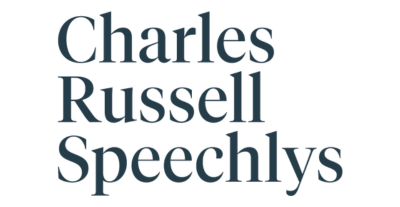Knowledge Hub
Join the Conversation!
Impartial and independent, ThoughtLeaders4 Private Client Knowledge Hub hosts cutting edge industry content and insight.
Email maddi@thoughtleaders4.com to submit content.
A Shared History and Legal System
Date: 14/11/2023 Type: Articles Topic: Private Client | Investment and HNWI’s |Cayman Islands' Legal System
To my mind, one of the greatest advantages of the Cayman Islands and the other British Overseas Territories ("BOTs") and Crown Dependencies ("CDs") is how much shared history they have with the commonwealth nations and one of the best examples of this is the depth of the connections to the British legal system. Much of the Cayman Islands' statutory law was originally enacted from equivalent law in the United Kingdom, albeit that it has often departed from the original source significantly over the decades. For example, the present Trusts Act (2021 Revision), as originally enacted in the Cayman Islands in 1967, was largely based on the UK Variation of Trusts Act 1958 and Trustee Act 1925 but now contains parts not included in these earlier acts, such as those dealing with reserved powers, exempted trusts, foreign elements (the so called "firewall" provisions) and the special trusts alternative regime (commonly referred to as the STAR Law).
The Cayman Islands Grand Court ("Grand Court") is, in most cases, a Superior Court of Record of First Instance, having unlimited jurisdiction in both criminal and civil matters. Appeals from the Grand Court go to the Cayman Islands Court of Appeal, which is also a Superior Court of Record.
The final level of appeal from the Cayman Islands Court of Appeal is the Judicial Committee of the Privy Council ("JCPC"), which is the court of final appeal for the Cayman Islands and generally for the BOTs and CDs and for those Commonwealth countries that have retained the appeal to His Majesty in Council or, in the case of Republics, to the JCPC.
Impact of English and Privy Council precedent on Cayman law
In a recent case[1] the Hon. Justice David Doyle, having helpfully reviewed case law from the Cayman Islands, the Isle of Man, Jersey, Guernsey, Bermuda, Hong Kong, and New Zealand, summarised the position of English precedent on the law of the Cayman Islands as follows:
- The ratio of a judgment of the JCPC on an appeal from the Cayman Islands is binding on all judges of the Cayman Islands;
- English decisions, even of the House of Lords and now the Supreme Court, are not binding on any judges in the Cayman Islands but they may be persuasive and, in some cases, highly persuasive;
- A judge in the Cayman Islands may decline to follow a decision of an English court, even at appellate level, if:
- There is some provision to the contrary in a statute of the Cayman Islands;
- There is some clear decision of a court of the Cayman Islands to the contrary;
- There is, exceptionally, some local condition which would give good reason not to follow it;
- There has been some compelling change of circumstance since the delivery of the English decision;
- There is some compelling reason not to follow it, such as the reasoning being fundamentally flawed;
- If the English decision has been abandoned or invalidated by the UK Parliament or not followed in other great common law courts, such as the High Court of Australia;
- Where English procedural rules have been implemented to remove the effect of the English decision;
- Where the common law was developing and is not settled;
- Where the English decision has been much criticised and can be said to be an affront to common sense and any sense of justice;
- Where it is undesirable to cling to obsolete English common law cases which have ceased to be authoritative in England and Wales;
- Where the underlying conditions in the respective jurisdictions are not truly comparable;
- Where it is inconsistent with contemporary law and its reasoning is inapplicable to the modern common law;
- Where, by reason of custom, statute or for some other reasons peculiar to the Cayman Islands, the English decision should be departed from; or
- If the English decision is obviously wrong or otherwise not persuasive.
The Honourable Judge concluded by saying:
"In the vast majority of cases the Cayman Islands courts will continue to follow English decisions
where appropriate. At the risk of stating the obvious the above categories are simply categories …where a Cayman judge may be justified in not following an English decision. This does not turn the doctrine of precedent on its head. Cayman Islands courts at first instance will still, of course, be bound by the ratios of the Cayman Islands Court of Appeal and the Judicial Committee of the Privy Council on appeals from the Cayman Islands. Moreover, Cayman Islands judges at first instance would normally also follow the judgments of other judges at first instance unless satisfied that such judgments were wrong…"
Trust principles
Two of the conclusions that may be drawn from this are, first, that Cayman Islands' trusts law benefits from a cohesive body of historical and developing law from kindred jurisdictions and that, second, accordingly, those that avail themselves of Cayman Islands' trusts law have the comfort of knowing that, if it comes to it, Cayman Islands' Courts will apply familiar and understood trust law and related principles such as:
- "Sham" and "illusory" trusts and the "true effect" of the trust[2];
- Exclusive jurisdiction clauses[3]; and
- Most recently, the "proper purpose" rule[4].
[1] In the Matter of HQP Corporation Ltd (In Official Liquidation) FSD 190 of 2021 (DDJ)
[2] Tasaruff Mevduati Sigorta Fonu v Merrill Lynch Bank and Trust Company (Cayman) Limited and others [2011] UKPC 17; JSC Mezhdunarodniy Promyshlenniy Bank and another v Serei Viktorovich Pugachev and others [2017] EWHC 2426 (Ch); Webb v Webb (Cook Islands) [2020] UKPC 22; William Gayhart and Debra Buchanan v John G. Schank [2020] FSD 206 of 2018 (IKJ)
[3] Hin-Pro International Logistics Limited v Compania Sud Americana De Vapores S.A. [2015] EWCA Civ 401; Ackerman v Synergy Capital Ltd [2013] EWHC 887 (Ch); Crociani & others v Crociani & others [2014] UKPC 40 and Geneva Trust Company (GTC) SA v IDF (by her court-appointed guardian) and MF 2021 (1) CILR 186
[4] Grand View Private Trust Co Ltd v Wen-Young Wong [2022] UKPC 47
Author
Andrew Miller - Bedell Cristin (Cayman)
Our Private Client Corporate Partners




























